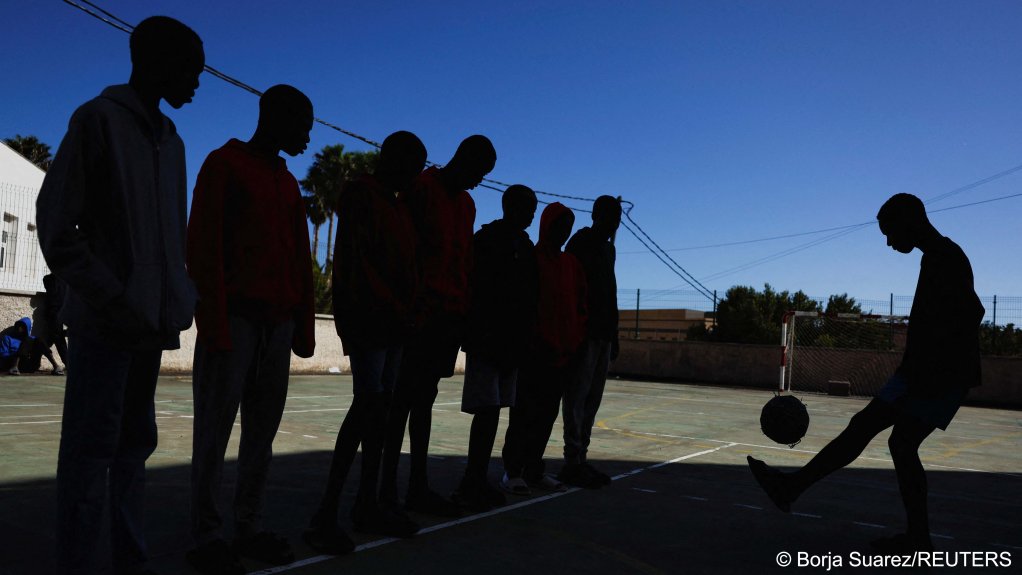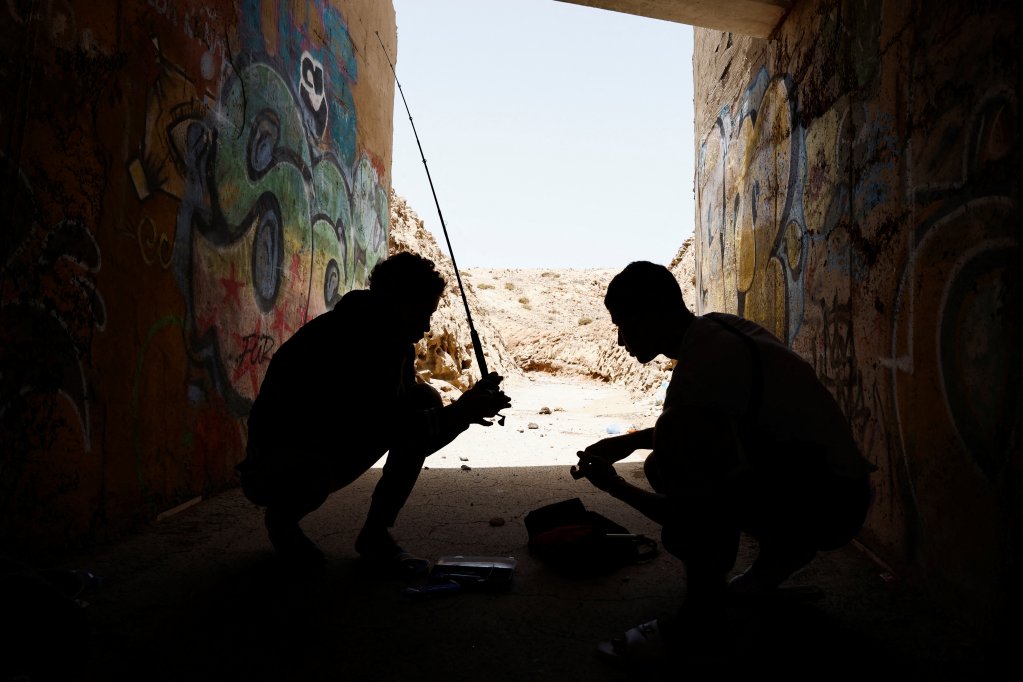Overcrowded migrant centers in the Canary Islands host 36.5 percent of Spain’s unaccompanied minors. Political disagreements are stalling redistribution efforts, as Amnesty International warns of resource shortages.
The Canary Islands regional government has once again sounded the alarm about the situation of overcrowding, particularly in centers reserved for unaccompanied minors in the Spanish archipelago in the Atlantic Ocean. The government says they are working to address the situation, but political disagreements between the leaders of various Spanish regions are stalling the redistribution efforts called for by the federal government.
The mayor of the northern town of Guía on Gran Canaria, Alfredo Gonçalves Ferreira, and the councilor for Social Services, Alejandro Rivero Díaz, held a meeting yesterday with the director of a new home for unaccompanied children aged zero to 15, that is set to open in the municipality.
Ferreira explained that this is "a serious and rigorous project," and will be led by the Samu Foundation which also runs a similar center that opened last year in Artenara. He also assured that the city council will ensure that all safety measures stipulated by the government of the Canary Islands for these homes are met.

The director of the new center emphasized that these are "children who will integrate into this community through their schooling at local schools and participation in extracurricular activities. They are young ones who, I am sure, will be welcomed with the generosity and solidarity that characterizes the people of Guía," he said.
As of December 31, 2023, Spain had 12,878 registered unaccompanied minors, with the Canary Islands hosting 4,700, or 36.5 percent of the total. However, only 192 minors had been transferred to other regions by August 2024.
Read AlsoSpain: More migrant arrivals, regions overwhelmed
Negotiations for redistribution
Last week, Fernando Clavijo, President of the Canary Islands, and Ángel Víctor Torres, Minister for Territorial Policy, met in Madrid to discuss the situation of unaccompanied minors arriving in the Canary Islands. The meeting, supported by Ceuta's government and Amnesty International, focused on finding a solution to ease the islands' burden.
They agreed to draft a legal framework within ten days to facilitate the distribution of these minors to other regions in Spain. The right-wing Popular Party (PP) and far-right Vox parties opposed the agreement, arguing that it lacked necessary funding and could encourage irregular immigration.
Clavijo also raised the issue of 545 unresolved asylum cases for minors from Mali and reiterated his push for changes to Article 35 of Spain's Foreigners Law, supported by the Canary Migration Pact.

Esteban Beltrán, director of Amnesty International Spain, stated on the organization's website that for the past two years, the regional governments "have failed to take responsibility for the care of these children, as required by international treaties."
"Authorities and political parties must urgently adopt a binding, mandatory, and equitable distribution proposal that guarantees adequate care for all foreign minors under the guardianship of any administration," he added.
The Spanish government has promised to continue negotiations with political parties to establish shared responsibility among regional governments and ensure the best interests of the minors are prioritized.
Read AlsoSpain urges humanitarian action as Canary Islands struggle to host underage migrants
Overcrowding and lack of resources
Overcrowding in some reception centers for unaccompanied minors is a major issue in the Canary Islands. According to Amnesty International, 82 reception centers are operating well beyond capacity and lacking sufficient resources, including specialized training, interpreters, and quality legal assistance.
Amnesty International also pointed out significant coordination issues among the institutions working with migrant minors, including inconsistent criteria across agencies like the police, the Public Prosecutor’s Office, and the General Directorate of Childhood.
"This has serious consequences, both for the rights of the children while they are minors, and, especially, when they have to face adult life. We have spoken with children who fear becoming adults because they don’t know what will happen to them," says Virginia Álvarez, Head of the Research and Domestic Policy department at Amnesty International Spain.

Amnesty is also concerned about the lack of legal documentation and residence permits for minors, which hinders their ability to work and integrate into society. One minor, 17-year-old Pierre* from Cameroon, expressed fear of being abandoned without resources after turning 18.
"Many boys have to leave [the reception center] when they turn 18, but they leave with nothing. I’m afraid this will happen to me too." Pierre has already been in the Canary Islands for over two years, after leaving his home to help his mother and siblings, Amnesty reported.
"The system is abandoning these boys and girls, leaving them without the tools to achieve their social integration," says Álvarez.
Read AlsoOver 780 migrants on 10 boats rescued off the Canaries
Further deaths at sea
Meanwhile, 50 people died in a boat attempting to reach the Canary Islands, the NGO Caminando Fronteras reported. The boat's occupants, mostly of Pakistani origin, endured "thirteen days of an agonizing journey without rescue," Helena Maleno, founder of Caminando Fronteras, wrote on the X social media platform.
Speaking on the Spanish radio channel Cadena Ser, the Canary Islands' Minister of Ecological Transition, Mariano Hernández Zapata, described the death of these 50 migrants as a "tragedy." "There is a serious immigration problem in the Canary Islands, where every day we hear about new deaths. We need to get to work and make decisions," Hernández Zapata stated.
Last year, the Canary Islands received nearly 47,000 migrants, an 18 percent increase on figures from 2023. According to a report titled The Right to Life 2024 by the NGO Caminando Fronteras, it is estimated that a total of 10,457 migrants died in their attempts to reach Spain last year. On the Atlantic route, the deadliest of all, the NGO reported 9,757 fatalities, the vast majority (71 percent) of which involved boats departing from Mauritania.
Read AlsoRecord number of migrant deaths in 2024 as Atlantic crossings to Spain soar
*Name changed to protect their identity
